- Industry and community to help shape ban of e-waste disposal to landfill
- State Government has committed to introducing the ban from 2024
- Consultation period runs for 10 weeks until 31 March 2023
E-waste are items with a plug, battery or cord that are no longer working or wanted. The ban would include televisions, mobile phones, computers, screens, data storage, white goods, batteries, medical devices, lighting and lamps.
Future phases of the ban would capture small household appliances like kettles, toasters and vacuums, photovoltaics including solar panels, as well as monitoring and control equipment.
The ban is a McGowan Government election commitment and would complement existing national product stewardship schemes, support the local e-waste industry and focus on recovering high value materials such as metals.
Funding of $14 million will support the implementation of the ban. More than $10 million will go towards infrastructure grants to boost the State's collection, storage, processing and recycling network capacity.
The ban would significantly increase the amount of e-waste that is reused or recycled, including items from drop-off points, local government collections and businesses.
The public consultation period will be open until 31 March. For more details, to read the discussion paper or register for an information session, visit consult.dwer.wa.gov.au
Comments attributed to Environment Minister Reece Whitby:
"E-waste is a rapidly growing stream of waste containing valuable and rare materials that are critical to reduce, reuse and recycle.
"Reducing waste to landfill not only moves WA closer to its goal of a circular economy, but provides jobs, builds local industries and protects the environment.
"Having your say will help us understand any industry or community concerns to help shape the e-waste ban to ensure it is practical, workable and effective."
Minister's office - 6552 6300
